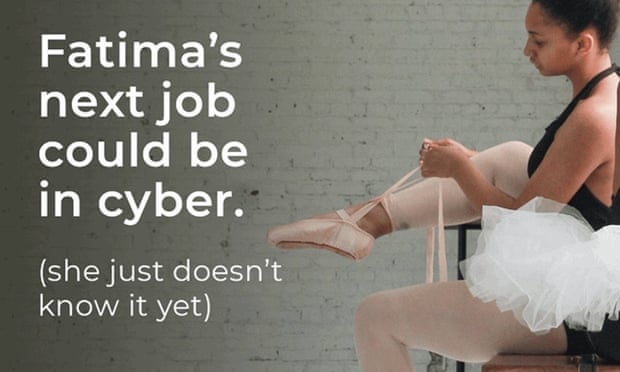DEBATE: Is the government right to be encouraging artists and dancers to retrain in tech?

Is the government right to be encouraging artists and dancers to retrain in tech?
Leon Emirali, an entrepreneur and adviser, says YES.
At some point soon, we will be left with no choice but to face up to the uncomfortable truths of this pandemic. Covid-19 is re-writing the economic rules we’ve played by for so long.
Yes, that prospect is daunting, and the government’s poster encouraging a ballet dancer to retrain “in cyber” was a little tactless. But history is littered with examples of big, profound disruptions that ultimately lead to greater prosperity and advancement.
No one wants to see the arts disappear, but we must collectively recalibrate our skill-sets and look towards the future with at least a shred of optimism. After so many uninterrupted years of stability, it is critical that we adopt an open mind when it comes to considering the lifelines thrown to the millions of people who will lose their jobs as a result of this pandemic.
A career in STEM has limitless potential and, once you scratch beneath the surface, can offer the perfect environment for the creative and artistic juices to flow. Let’s not sneer at the prospect of retraining — after all, great things never come from comfort zones.
Patrick McCrae, chief executive of arts and cultural consultancy ARTIQ, says NO.
The cultural sector adds £32.3bn annually to our economy, and yet this government is not giving cultural businesses the long-term support they need to get back on track. Instead, it is suggesting that creative professionals give up on their dreams entirely and retrain.
Instead of denigrating the arts, the government needs to support them. The £1.5bn Culture Rescue Fund will save some organisations, but it won’t be enough. We need the same breaks STEM businesses get at both a training and funding level.
There must be a shift in the narrative about how we talk about the arts. Introduce campaigns encouraging young people to engage with culture and creativity, and show how the UK’s rich demography benefits from its artistic sector, how it is a driver for tourism and an export to the world stage — in short, how individuals and the wider economy will benefit.
If this misguided rhetoric doesn’t change, we risk irrevocably damaging centuries of work, dissuading a generation of artists, and robbing the economy of one of its most valued sectors.